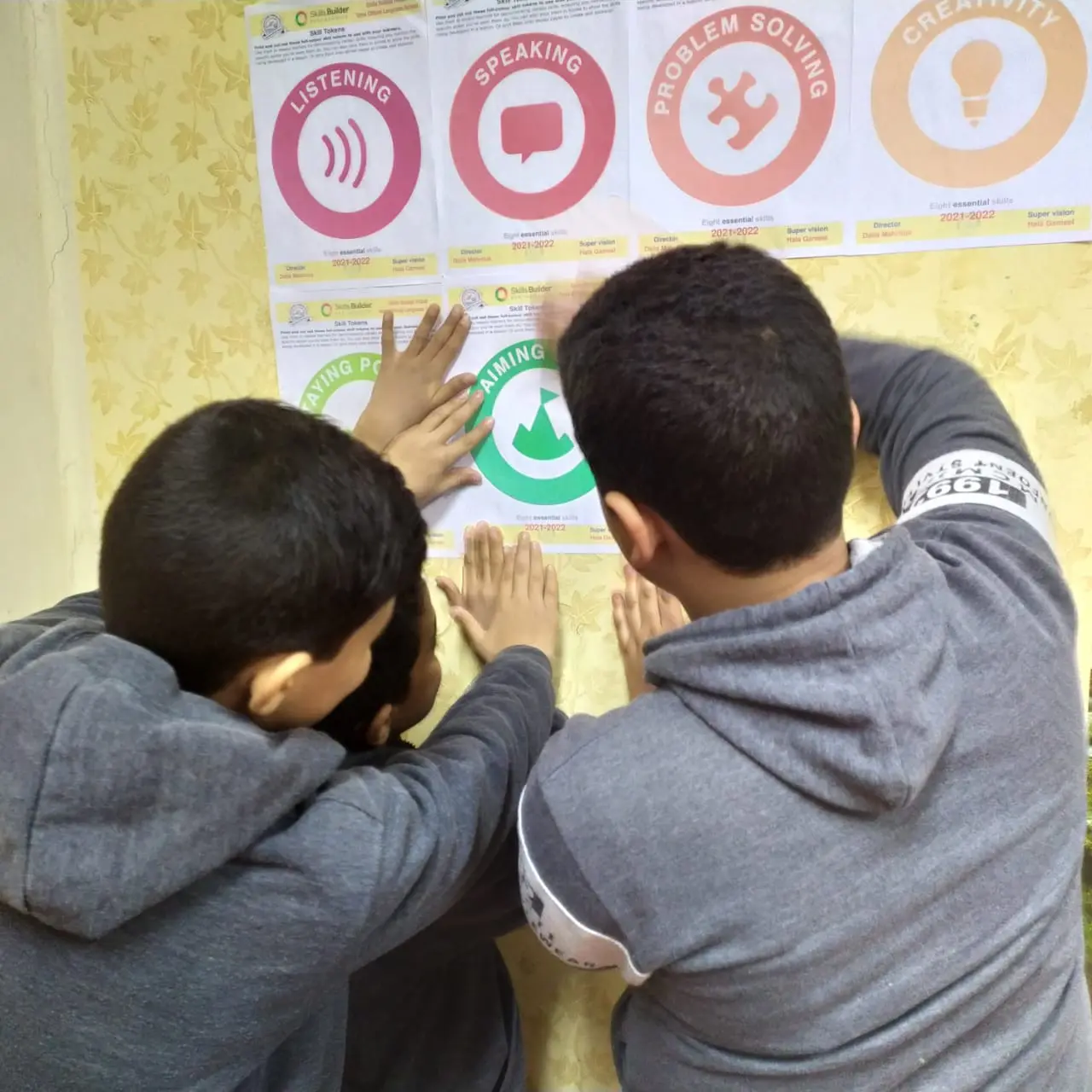Tema Official Language School is in the Arab Republic of Egypt, Sohag governorate Tema city, Al Sahel Street. The learners are aged 6 to 17 years, from Kindergarten to secondary.
The school has benefited from the Global Accelerator+ programme to develop students’ essential skills, including their ability to deal with difficulties in their academic work, and to transfer this to the outside world and benefit in life. We interacted with the programme attending Skills Leader Training Day and by delivering teacher training sessions to all staff. We have spent time studying the steps from the Universal Framework and we have started to apply these steps across different areas of the curriculum. Due to the needs of our students, this year we have decided to focus on the essential skills of Listening, Speaking, Problem Solving and Staying Positive.

The skills have been referred to in maths, English and science lessons (science lessons include skill-related objectives from the Universal Framework). Using and reinforcing skills as often as possible accelerates progress and embeds learning, so students are able to apply what they have learned. For example, to overcome the problem of pollution, students were trained to learn how to farm. They farmed with their own hands in the schoolyard. To do this, students applied Staying Positive steps from the Universal Framework to achieve their objectives.
We are excited to continue working with Skills Builder next year and hope to achieve the Silver Award. We will consider ways to introduce the other skills across the curriculum (Creativity, Aiming High, Leadership and Teamwork). In addition, we hope to use the translated version of the Universal Framework in Arabic to make the language of the skills accessible to our wider community. We would also like to focus on writing the skills into the curriculum policy.
























